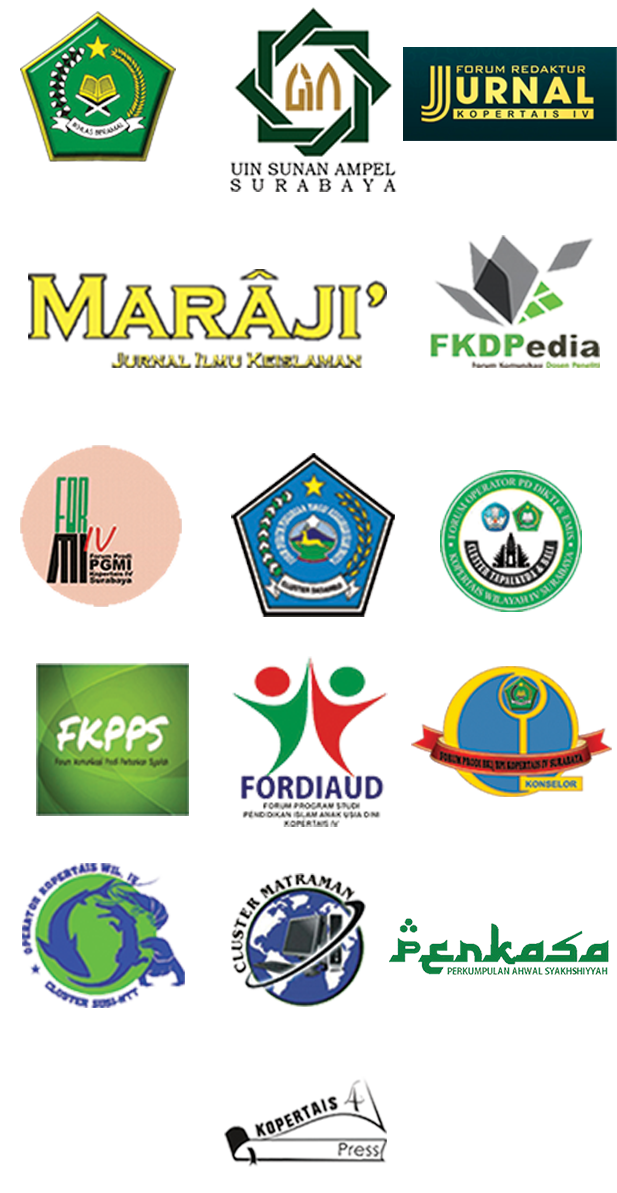Pembangunan Ekonomi Inklusif Melalui Nilai Islam dan Kearifan Lokal
Studi pada Komunitas Mualaf Yayasan Alyumna Candi Kuning Bali
Abstract
This study examines the development of inclusive economy in the mualaf community through the application of Islamic values and local wisdom, with a case study of the Alyumna Candi Kuning Foundation in Bali. Previous studies have less explored the mualaf community in the context of economic development, especially in non-Muslim areas such as Candi Kuning Bedugul, thus this study fills this gap. This research offers a new approach by combining Islamic values, such as the development of inclusive economic empowerment, the contribution of zakat and infaq implementation concepts, and Balinese local wisdom such as gotong royong and tri hita karana to strengthen the economy of the mualaf community. The research uses a qualitative approach with a case study method. Data was collected through in-depth interviews, field observations, and document analysis. Thematic analysis was used to understand the application of Islamic values and local wisdom in economic mentoring activities for the mualaf community. The research shows that the integration of religious values and local wisdom can strengthen the community economy, create social solidarity, and support inclusive economic development. The religion and local culture-based approach has proven effective in addressing the economic challenges of the Alyumna Foundation's mualaf community. Research recommendations include the development of policies that support inclusive economic models based on religious and local cultural values. Governments and organizations can adopt this approach to assist other communities in Indonesia.
Downloads
References
Adila, D. R., Nugroho, H., & Idriani. (2020). A Phenomenology Study: The Experience Of Mother Gave Birth At Home With Partnership Of Health Workers And Traditional Birth Attendants Studi Fenomenologi: Pengalaman Ibu. https://www.semanticscholar.org/paper/b92b8a0bec53558a55e6dadeea0d45f65f72f262
Corry, A. (2013). KOMUNIKASI INDONESIA UNTUK MEMBANGUN PERADABAN BANGSA. https://www.semanticscholar.org/paper/7422a95b9d84a0ce48cae0642136716d4d2af5c3
Dewi, A. P., & Hakiki, M. I. (2023). Transformasi Digital dalam Industri Halal di Indonesia (Studi Implementasi Teknologi Blockchain dalam Proses Sertifikasi Halal). Indo-Fintech Intellectuals: Journal of Economics and Business, 3(2), 360–370. https://doi.org/10.54373/ifijeb.v3i2.240
Ipandang, I., Ipandang, I., Laksana, S. D., Laksana, S. D., Laksana, S. D., & Laksana, S. D. (2021). MEMBANGUN KESADARAN KEBERAGAMAAN INKLUSIF DI MASYARAKAT SEGRERATIF DI SULAWESI TENGGARA. https://doi.org/10.24269/adi.v5i1.3744
Laksono, dkk P. M., & Laksono, dkk P. M. (2002). PEMBERDAYAAN MASYARAKAT DALAM MENINGKATKAN KESEJAHTERAAN YANG BERPERSPEKTIF LINGKUNGAN: Studi Ekologi Budaya Kawasan HutanMangrove/Lahan Basah Di Jawa Tengah Dan Kalimantan Timur. https://www.semanticscholar.org/paper/99434c89b2e9c9e8a0b5bae07488ca43a1403409
Manara, A. S., & Manara, A. S. (2018). IMPLEMENTASI NILAI-NILAI KEARIFAN LOKAL NUSANTARA DALAM PENGEMBANGAN INDONESIA HALAL TOURIS. Et-Tijarie: Jurnal Hukum Dan Bisnis Syariah. https://doi.org/10.21107/ete.v5i2.4584
Muis, B., & Muis, B. (2021). ETIKA BISNIS DALAM PRESPEKTIF EKONOMI ISLAM. Tajdid. https://doi.org/10.52266/tadjid.v5i1.628
Muslimah, A. I., & Akbar, N. (2021). The Efficiency of Zakat Collection and Distribution in Indonesia. JESI (Jurnal Ekonomi Syariah Indonesia), 11(1), 28. https://doi.org/10.21927/jesi.2021.11(1).28-40
Mutmainah, S. (2023). Optimization of Productive Zakat As An Effort to Empower The Economy of The People. Empowering Humanity, 1(1), 38–53.
Nim., H. R., & Nim., H. R. (2009). KERUKUNAN UMAT BERAGAMA (STUDI HUBUNGAN PEMELUK BUDDHA DAN ISLAM DI DESA JATIMULYO, KEC. GIRIMULYO KAB. KULON PROGO). https://www.semanticscholar.org/paper/b0da839871684b01a3bc9fbd7498906bcb6467ca
Nurdin, A., Nurdin, A., Nurdin, A., Kasim, F. M., & Kasim, F. M. (2017). RESOLUSI KONFLIK BERBASIS ADAT DI ACEH: Studi tentang azas dan dampaknya dalam membangun perdamaian di Lhokseumawe. https://www.semanticscholar.org/paper/8725f952593ea7df5775ec2d4ed06b862be23ab5
Nurzami, F., & Nurzami, F. (2006). KEARIFAN LOKAL MASYARAKAT BADUYDALAM BENTURAN MODERNITAS. https://www.semanticscholar.org/paper/ad4515db98202c7362e9f061e15b2de30057d8b8
Rahmawati, M. H. N. A. N. F. (2023). Konsep Ekonomi Dan Perbandingannya Antara Kapitalis, Sosialis Dan Islam. Al Fattah E-Journal SMA Al Muhammad Cepu, 2(Vol 2 No 02 (2023): Jurnal Pendidikan), 47. https://www.ejournal.smaamc.sch.id/index.php/belajar/article/view/41/30
Rusydiana, A. S., & Nailah. (2020). Zakat & Technology : Bibliometric R. 4th International Conference of Zakat Proceedings, 5(3), 311–330.
Sahman Z, Rizka, Muchammad Taufiq Affandi, Anindya Salsabila, & Muthoifin. (2023). Productive Zakat Distribution of Building Village Model To Increase Mustahiq Income. Profetika: Jurnal Studi Islam, 24(02), 292–303. https://doi.org/10.23917/profetika.v24i02.3171
Supardi, Sugianto, Selayan, A. N., & Hasanah, F. Y. (2023). Analisis Efektivitas Penyaluran Dana Zakat Pada Baznas Kabupaten Asahan Tahun 2019-2022. Urnal Manajemen Dan Keuangan Syariah, 4(1), 1–10.
Timisela, M., Timisela, M., Timisela, M., Kameo, D. D., Kameo, D. D., Kameo, D. D., Rupidara, N. S., Rupidara, N. S., Rupidara, N. S., Siahainenia, R., & Siahainenia, R. (2020). Local Papuan Migrants: Wamena Migrants in an Urban City of Jayapura, Papua-Indonesia. Journal of Regional and City Planning. https://doi.org/10.5614/jpwk.2020.31.1.3
Unayah, N., Unayah, N., Sabarisman, M., Sabarisman, M., Sabarisman, M., & Sabarisman, M. (2016). IDENTIFIKASI KEARIFAN LOKAL DALAM PEMBERDAYAKAN KOMUNITAS ADAT TERPENCIL. https://doi.org/10.33007/inf.v2i1.136
Copyright (c) 2025 Mustaqim Makki, Azisi Azisi

This work is licensed under a Creative Commons Attribution-ShareAlike 4.0 International License.









